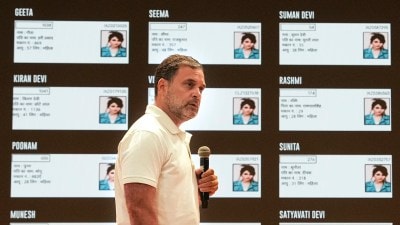Fiscal deficit can be contained at 5.1% of GDP in FY13
He believes that the government will have to take decisive action on the diesel and fertiliser subsidy regime.
With the Union Budget 2012-13 firmly focused on maintaining growth and containing fiscal deficit,PMs Economic Advisory Council chairman C Rangarajan believes that the government will have to take decisive action on the diesel and fertiliser subsidy regime. In an interview with Surabhi,the former central bank governor also said that the RBI would only take action on key rates once it is convinced that inflation is fully on the decline. Excerpts:
The Budget has been criticised for not being sufficiently reformist. What is your view?
The finance minister had two broad objectives in the Budget to accelerate economic growth and to contain deficit in order to support a high growth over the medium term. I think he has delivered on both. I welcome the strong statement that he has made on fiscal deficit. If we persist with this kind of reduction of 0.8 percentage points every year over the next three years,we could reach the FRBM target of 3 per cent of the GDP.
Isnt the fiscal consolidation plan very ambitious?
The fiscal deficit can be contained at 5.1 per cent in the next year the revenue estimates are reasonable and they are achievable. Tax revenues are expected to rise at 19 per cent,which is reasonable to assume. This can be decomposed into 15 per cent growth on normal basis and 4 per cent because of the additional tax measures. The FM has also laid down targets for cutting subsidies as part of expenditure control. He has already provided for a total amount of subsidies which in absolute amount is lower than the current year.
The rapid decrease in the subsidy burden means that there will be some action on diesel and fertiliser price deregulation?
This presupposes the government taking some decisive measures during the year to contain the deficit,particularly with respect to petroleum and fertiliser,some policy action will be required to achieve a containment of the level of subsidy. The fiscal deficit will be contained only if some policy action on this front is taken.
Will the Centres huge borrowing programme for FY13 crowd out private investments?
The Budget proposals have tried to facilitate flow of funds to large corporates as well as small scale enterprises by allowing for greater access to capital markets. Its emphasis on increasing public investment in key infrastructure areas such as roads,power,coal and railway will also have a salutary effect on increasing private investments. For instance,promoting highway construction will stimulate demand for cement.
How big a threat do you think is the current account deficit (CAD)?
We at the Economic Advisory Council were the first to highlight the threat from the CAD. We expect that we will be able to meet the estimated CAD of 3.6 per cent of the GDP in FY12 with improved capital flows in the latter half of the year. But we have recommended moving to a lower CAD. We must be pro active in attracting capital flows. While I think the Budget has indicated a number of steps for this,the most important thing for capital flows to come into a country is the perception of external investors over the economy. If the Indian economy continues to grow at 8 per cent,and if we keep the fiscal deficit and inflation at a reasonably low level,we will be able to attract investors.
With global crude prices still high,is the Budget estimate on inflation for FY13 very optimistic?
The way inflation is behaving,it is my estimate that by March 2012,inflation will be about 6.5 per cent. In the normal circumstances,given the high base of the current year,inflation rate will come down perhaps without the impact of imported inflation. With some adjustments in prices due to global factors,the inflation rate may stay around 6 per cent next year. So the projected inflation rate of 6 per cent does take into account the adjusted prices.
The RBI in its last policy review had said it would take steps depending on the governments fiscal policies in the Budget. What do you expect?
The RBIs policy will be largely guided by the behavior of inflation. If headline and core inflation rates moderate over the next few weeks,only then will the RBI decide to reverse its policy on rates.



- 01
- 02
- 03
- 04
- 05




























